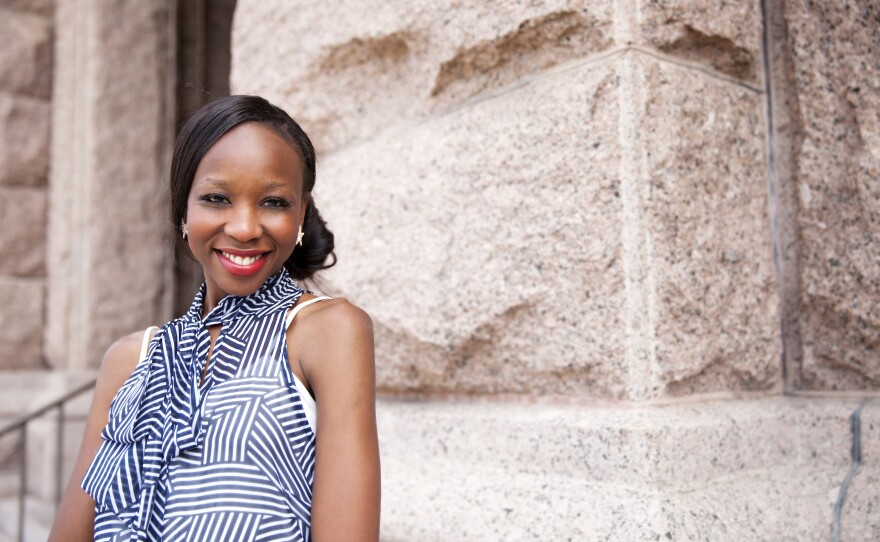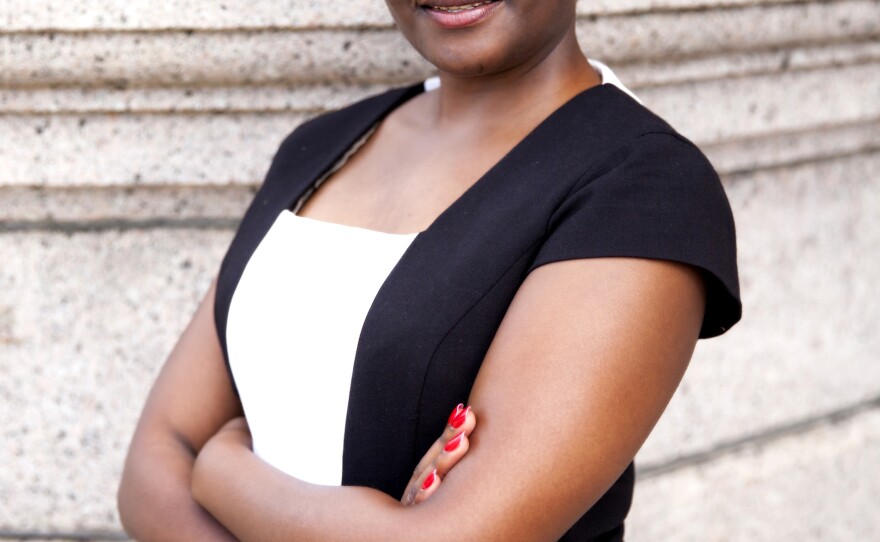Some young people in Africa are struggling with problems that many Americans take for granted – including serious unemployment and access to basic needs.
A group of 25 young Africans from 18 different countries have been at UT-Austin this summer to bring to life their business plans for addressing some of the challenges in their countries.
It’s part of President Obama’s Young African Leaders Initiative. The national program is in its fourth year but this is the first time participants have spent time at a university prior to a summit in Washington.
Sixty percent of Africa’s total population is under the age of 35. That’s a lot of young people – some of whom expect to be the next local and world leaders.
“I would describe myself aptly as a businesswoman, a broadcaster and a world changer," Faith Mangope says.
Mangope is wearing long fake lashes that accent her bright eyes – which are focused squarely on the future of the young people in her country.
“I hail from South Africa – really the concrete jungle of Johannesburg," Mangope says.

She says 60 to 70 percent of young adults in South Africa are unemployed. To fight that, she founded a business training group.
“Basically what we do is we take them through a three-day forum where we take them through the 101 of basic business practices," Mangope says. "Then we identify those sectors of industry that really need the penetration of young people, young owners of industry.”
While she spends a good deal of time teaching entrepreneurship, she says there’s also room for her to learn more. That’s why she’s here.
“What I’m learning to do is to expand the business model that I have, further," Mangope says.
Right now, her business is just reaching young people in South Africa but she thinks it can be expanded – and she has her sights set next on Nigeria.
Florence Kamaitha is also in Austin to learn about becoming a business leader.
“I’m from Kenya," Kamiatha says. "We pride ourselves in that we share Obama with you guys. It’s a beautiful country and I love being there.”
But Kamaitha noticed a problem in some rural parts of the country.
“We actually went to a school to donate some desks and, being a mixed school, we did not see many girls so when we had the headmaster where the girls were, he actually told us, ‘It’s that time of the month,'" Kamaitha says.
She was shocked to learn these girls were missing school because they could not afford sanitary pads.
“It’s a very poor community and they use cloths to contain their flow and at the age at 9, 10 some of them are even having sex with the boys in the villages to get money to buy the towels," Kamaitha says. "Towels in my country are really really expensive. They cost at least $2. And for families that survive on less than $1 a day, buying sanitary towels is not a priority.”
Kamaitha started by getting her friends to donate sanitary pads – or towels – but says that, in the long-term, that model isn’t as sustainable or effective as starting a company to create cheaper options for girls.
“There’s an invention that was done in India where they are converting banana stems into fiber –that is used to create the sanitary towels," Kamaitha says. "In Kenya, we have 1.4 million tons of bananas every year. When the farmers harvest, it’s actually agricultural waste. So I am actually recycling that to make something great for the girls. And it’s very affordable – it will cost about 50 percent cheaper than what we have in the market. [For] labor I will use the women in that community so I am giving them employment and also now create a product that is now accessible to every girl out there.”
Kamaitha has started an online fundraising campaign in her time at UT to get her company – called “Pad Heaven” – off the ground. She also says Pad Heaven is one of the projects selected by the First Lady to "deliberate on the challenges that girls go through in pursuing their education."
Mangope says she’s been inspired in her time at UT.
“And the most amazing thing is the actual mantra of the University of Texas at Austin, which is ‘what start here changes the world,' Mangope says. "And that’s so true. If you allow yourself, whatever situation you’re in, and you allow yourself to be present within that situation, you really can change the world."
And the women agree that if Africa’s leaders could learn to get along like the diverse group of 25 at UT has, the continent would be much better off.
From here, Mangope, Kamaitha and the rest of the young leaders head to Washington for a full summit – and to meet President Obama.






